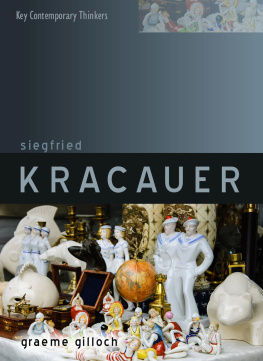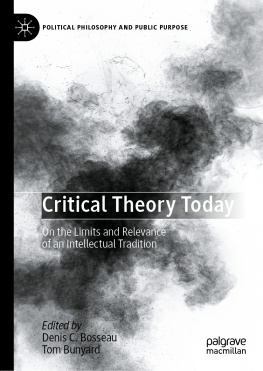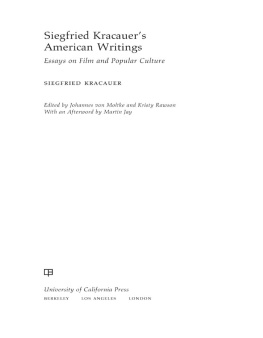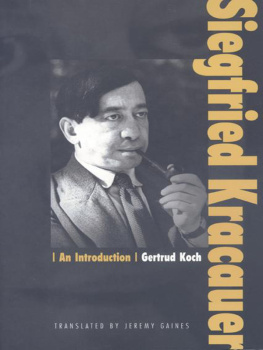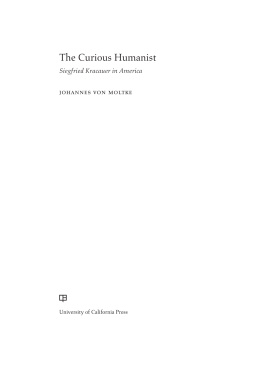
Key Contemporary Thinkers
- Jeremy Ahearne, Michel de Certeau
- Lee Braver, Heidegger
- John Burgess, Kripke
- Michael Caesar, Umberto Eco
- M. J. Cain, Fodor
- Filipe Carreira da Silva, G. H. Mead
- Rosemary Cowan, Cornel West
- George Crowder, Isaiah Berlin
- Gareth Dale, Karl Polanyi
- Colin Davis, Levinas
- Oliver Davis, Jacques Rancire
- Maximilian de Gaynesford, John McDowell
- Reidar Andreas Due, Deleuze
- Matthew Elton, Daniel Dennett
- Simon Evnine, Donald Davidson
- Chris Fleming, Ren Girard
- Edward Fullbrook and Kate Fullbrook, Simone de Beauvoir
- Andrew Gamble, Hayek
- Neil Gascoigne, Richard Rorty
- Nigel Gibson, Fanon
- Graeme Gilloch, Siegfried Kracauer
- Graeme Gilloch, Walter Benjamin
- Karen Green, Dummett
- Espen Hammer, Stanley Cavell
- Phillip Hansen, Hannah Arendt
- Sean Homer, Fredric Jameson
- Christina Howells, Derrida
- Fred Inglis, Clifford Geertz
- Simon Jarvis, Adorno
- Rachel Jones, Irigaray
- Sarah Kay, iek
- S. K. Keltner, Kristeva
- Valerie Kennedy, Edward Said
- Chandran Kukathas and Philip Pettit, Rawls
- Moya Lloyd, Judith Butler
- James McGilvray, Chomsky, 2nd Edition
- Lois McNay, Foucault
- Philip Manning, Erving Goffman and Modern Sociology
- Dermot Moran, Edmund Husserl
- Michael Moriarty, Roland Barthes
- Marie-Eve Morin, Jean-Luc Nancy
- Stephen Morton, Gayatri Spivak
- Timothy Murphy, Antonio Negri
- Harold W. Noonan, Frege
- James O'Shea, Wilfrid Sellars
- William Outhwaite, Habermas, 2nd Edition
- Kari Palonen, Quentin Skinner
- Herman Paul, Hayden White
- Ed Pluth, Badiou
- John Preston, Feyerabend
- Chris Rojek, Stuart Hall
- William Scheuerman, Morgenthau
- Severin Schroeder, Wittgenstein
- Susan Sellers, Hlne Cixous
- Wes Sharrock and Rupert Read, Kuhn
- David Silverman, Harvey Sacks
- Dennis Smith, Zygmunt Bauman
- James Smith, Terry Eagleton
- Nicholas H. Smith, Charles Taylor
- Felix Stalder, Manuel Castells
- Geoffrey Stokes, Popper
- Georgia Warnke, Gadamer
- James Williams, Lyotard
- Jonathan Wolff, Robert Nozick
- Christopher Zurn, Axel Honneth

Copyright Graeme Gilloch 2015
The right of Graeme Gilloch to be identified as Author of this Work has been asserted in accordance with the UK Copyright, Designs and Patents Act 1988.
First published in 2015 by Polity Press
Polity Press
65 Bridge Street
Cambridge CB2 1UR, UK
Polity Press
350 Main Street
Malden, MA 02148, USA
All rights reserved. Except for the quotation of short passages for the purpose of criticism and review, no part of this publication may be reproduced, stored in a retrieval system, or transmitted, in any form or by any means, electronic, mechanical, photocopying, recording or otherwise, without the prior permission of the publisher.
ISBN-13: 978-0-7456-2961-2
ISBN-13: 978-0-7456-2962-9(pb)
ISBN-13: 978-0-7456-8949-4(epub)
ISBN-13: 978-0-7456-8948-7(mobi)
A catalogue record for this book is available from the British Library.
Library of Congress Cataloging-in-Publication Data
Gilloch, Graeme.
Siegfried Kracauer : our companion in misfortune / Graeme Gilloch.
pages cm
ISBN 978-0-7456-2961-2 (hardback : alk. paper) ISBN 978-0-7456-2962-9 (pbk. : alk. paper) 1. Kracauer, Siegfried, 1889-1966Criticism and interpretation. I. Title.
PT2621.R135Z67 2015
834.912dc23
2014022838
The publisher has used its best endeavours to ensure that the URLs for external websites referred to in this book are correct and active at the time of going to press. However, the publisher has no responsibility for the websites and can make no guarantee that a site will remain live or that the content is or will remain appropriate.
Every effort has been made to trace all copyright holders, but if any have been inadvertently overlooked the publisher will be pleased to include any necessary credits in any subsequent reprint or edition.
For further information on Polity, visit our website:
politybooks.com
For Peter
There are a lot of people these days who, although unaware of each other, are nevertheless linked by a common fate. [T]hey are overcome by a profound sadness which arises from the recognition of their confinement in a particular spiritual/intellectual [geistige] situation, a sadness that ultimately overruns all layers of their being. It is this metaphysical suffering from the lack of a higher meaning in the world, a suffering due to an existence in an empty space, which makes these people companions in misfortune.
Siegfried Kracauer, Those Who Wait (1922), in The Mass Ornament
Acknowledgements
The metaphor of the journey runs through this book. Writing it has indeed proved a long (much longer than anticipated) and sometimes daunting adventure. I am grateful to so many people who have shared the road awhile as guides, as well-wishers and, most of all, as constant companions. You have all brought me such good fortune.
My publisher, Polity Press, and, in particular John B. Thompson and Jonathan Skerrett, have been supportive throughout and I am deeply grateful for their kind help and, above all, their perseverance and patience. Thank you for standing by me and by the project.
I would like to thank the Alexander von Humboldt Foundation and the Leverhulme Trust for their kind and generous fellowship awards which enabled me to undertake archive research in Germany. I am very grateful to the Archivzentrum of the Stadt- und Universittsbibliothek (Johann Wolfgang Goethe Universitt, Frankfurt am Main) and the Deutsches Literaturarchiv (Marbach am Neckar) for permission to access and use materials in the Max Horkheimer, Leo Lwenthal and Siegfried Kracauer archives. I would like to thank the archive staff who were always most welcoming, helpful and generous with their time. In particular, I would like to express my sincere gratitude to Herr Jochen Stollberg in Frankfurt and wish him every happiness in his retirement.
This book could not have come into being without the help and support of so many students, colleagues and friends along the way indeed, students who have now become colleagues, and colleagues who have now become friends. I have benefited in myriad ways from conversations and exchanges with Ross Abbinnett, Erkan Ali, Andrew Benjamin, Matthias Benzer, Blent Diken, Nigel Dodd, Karen Engle, Jonathan Fletcher, Adam Fish, Tara Forrest, Emma Fraser, Gunter Gassner, Stefano Giacchetti, Craig Hammond, Christian Hermansen Cordua, Jeesoon Hong, Noah Isemberg, Troels Degn Johansson, Jane Kilby, Sungdo Kim, Claus Krogholm Kristiansen, Fabio La Rocca, Dee Leahy, Changnam Lee, Esther Leslie, Jack Nye, Ulrich Oevermann, Deborah Parsons, David Pinder, Antonio Rafaele, Jiseok Ryu, Erik Steinskg, Phillipe Simay, Greg Smith, Paul Taylor, Zoe Thompson, Imogen Tyler and Gl Yassturk. My sincere thanks to all of you.
Next page
